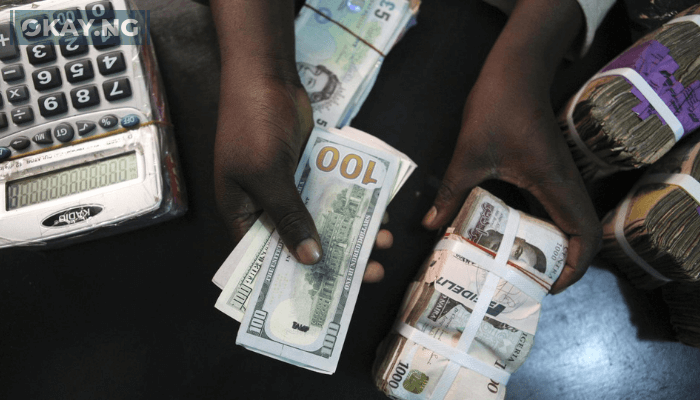Business
Naira Depreciate Against US Dollar, Trade At N1,450/$ In Parallel Market

The Nigerian naira experienced a significant drop on Thursday afternoon, reaching N1,450 per dollar in the parallel market. This represents an 8.28% decline or an N120 difference from the previous rate of N1,330 reported yesterday morning.
Currency traders have confirmed this downward trend, highlighting the currency’s ongoing volatility. Bureau De Change (BDC) operators have observed a purchase rate of N1,350 and an approximate selling rate of N1,450, allowing traders to benefit from an N100 profit margin. This fluctuation in the parallel market has raised concerns among economic stakeholders, leading to a closer examination of the factors contributing to this sharp depreciation.
To address foreign exchange challenges, the Central Bank of Nigeria (CBN) has taken proactive measures, including increasing dollar supplies through BDCs. This strategic approach aims to ease pressure on the foreign exchange market and mitigate the impact of imported inflation, which has been a persistent concern for policymakers.
The Central Bank of Nigeria (CBN) has recently taken steps to address the foreign exchange rate for dollar distributions to the Bureau de Change (BDCs). On April 23rd, the CBN offered $10,000 at a rate of N1,021 per dollar, which is significantly lower than the official rate reported by FMDQ. This move reflects the CBN’s efforts to improve liquidity in the unofficial market.
Furthermore, the CBN’s intervention in resolving outstanding obligations of airlines, amounting to over $136 million, has instilled confidence in the forex market. These measures have contributed to the gradual recovery of the naira, as evidenced by its improvement from N1,617 per dollar in early March to N1,072 per dollar on April 17th.
However, it is important to note that the official market also experienced a depreciation, with the naira declining to N1,309.88 against the dollar by the end of Thursday’s trading. This represents a 0.10% decrease from the previous rate of N1,308.52 recorded on Wednesday. This mixed performance highlights the intricate dynamics that influence Nigeria’s currency market.
Further analysis indicates that the naira faced similar devaluations against other major currencies. It lost 7.06% against the British pound, ending at N1,700 compared to the morning rate of N1,580. Additionally, the naira dropped by 8% against the euro, closing at N1,500 per euro, down from N1,380 earlier in the day.
Trading volumes in the forex market also witnessed a significant increase, rising by 15.40% to $245.58 million, surpassing the previous record of $212.8 million reported by NAFEM. However, concerns remain about the downward trajectory of reserves, which experienced an 18-day decline followed by a slight recovery of 0.018% on Tuesday, reaching $32.112 billion from $32.109 billion reported on March 22nd.